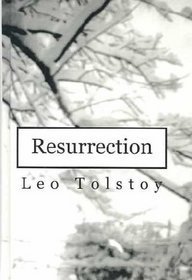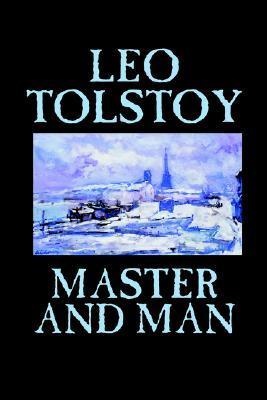
Resurrection
Book Description
A chance encounter ignites a battle of conscience that spans the depths of guilt, redemption, and the struggle for justice. As Prince Nekhlyudov confronts the woman he once wronged—a woman now trapped in a web of despair—his privileged world shatters. A gripping tale unfolds amidst the stark realities of a corrupt legal system, igniting fierce emotions and moral dilemmas. Love, betrayal, and the quest for forgiveness weave a complex tapestry of human connection. Will Nekhlyudov find the courage to change his fate and seek redemption, or is he doomed to repeat the sins of his past?
Quick Book Summary
"Resurrection" by Leo Tolstoy tells the story of Prince Dmitri Ivanovich Nekhlyudov, a nobleman whose path crosses years later with Katerina Maslova, a young woman he once seduced and abandoned. Encountering her again as she stands trial for murder, Nekhlyudov is confronted with the consequences of his actions and the flaws in Russia’s legal and social systems. Driven by remorse and a sense of justice, he commits himself to aiding her and challenging the machinery that perpetuates suffering and injustice. As he navigates the labyrinth of bureaucracy and corruption, he embarks on a journey of self-realization, redemption, and spiritual awakening. Tolstoy’s exploration of love, guilt, social decay, and the possibility of personal and societal transformation underscores the enduring power of conscience and compassion.
Summary of Key Ideas
Table of Contents
The Struggle for Moral Redemption
Tolstoy’s "Resurrection" opens with Prince Nekhlyudov called for jury duty in a murder trial. To his shock, the defendant is Katerina Maslova, once a servant girl on his aunt's estate and a woman he seduced and abandoned. Consumed by guilt for the tragic turn that Maslova's life has taken—falling from innocence to prostitution and now accused of a crime she did not commit—Nekhlyudov’s previously unexamined life as a nobleman is upended. This encounter marks the beginning of a moral crisis that propels him to examine not just his own actions, but the unfairness built into the society around him.
Critique of Social and Legal Injustice
Confronting his privileged status, Nekhlyudov becomes an eyewitness to the deeply flawed Russian legal system. Through the labyrinth of courts, prisons, and bureaucracy, Tolstoy exposes judicial corruption, systemic indifference, and the casual cruelty inflicted upon society’s weakest. As Nekhlyudov advocates for Maslova’s innocence, he is drawn into the fates of other prisoners, awakening to a wider tapestry of suffering and injustice. The legal farce and the dehumanization he witnesses intensify his sense of responsibility, intertwining his redemption with the fight for meaningful reform.
The Power and Burden of Conscience
The novel delves deeply into the workings of conscience, framing Nekhlyudov’s journey as both a personal and universal quest. Plagued by remorse, he must contend with the possibility of forgiveness: both Maslova’s and his own. Tolstoy skillfully portrays the inner conflict between selfish desire, duty, and the longing for moral clarity. Nekhlyudov’s attempts to rectify his wrongs go beyond mere penance; through these, Tolstoy questions whether true atonement is possible in a world so mired in sin and hypocrisy.
Transformation Through Compassion
Through encounters with Maslova and the condemned, Nekhlyudov’s sense of empathy and compassion is awakened. No longer content with the passive privilege of his class, he searches for spiritual meaning in personal sacrifice. His gradual shift from self-interest to selflessness embodies Tolstoy’s vision of transformation through love and humility. Yet, this path is fraught with challenges, including society’s cynicism and Maslova’s own struggle to trust him again.
Society, Hypocrisy, and Spiritual Awakening
Ultimately, the journey is as much Nekhlyudov’s internal resurrection as it is a condemnation of societal decay. Tolstoy’s final chapters eschew easy resolutions and suggest that true change requires both individual transformation and collective awakening. The novel’s unresolved moral dilemmas challenge the reader to consider the nature of justice, the possibilities of forgiveness, and the means by which one may seek redemption in a world resistant to change.
Download This Summary
Get a free PDF of this summary instantly — no email required.





